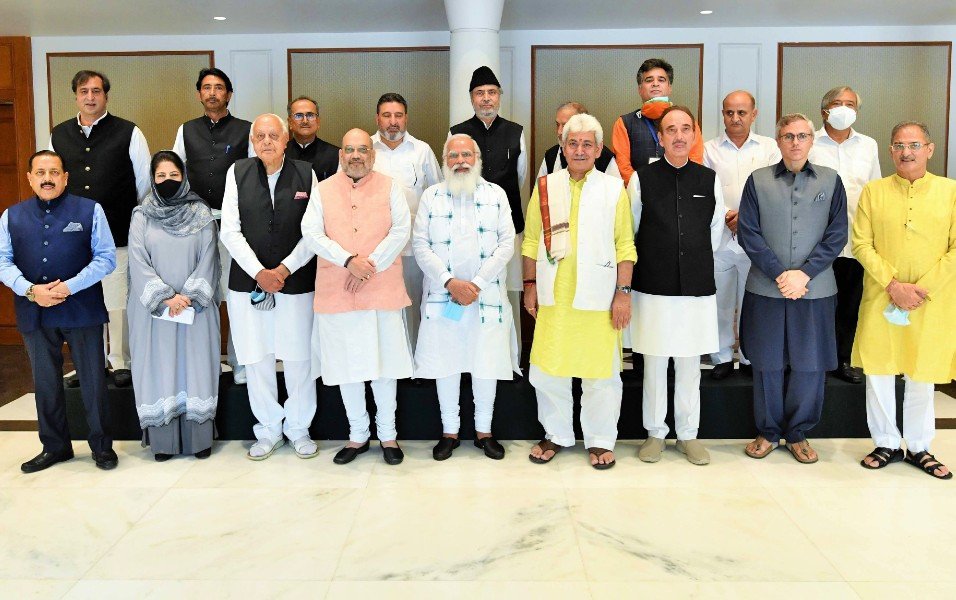Calm dawns at J&K horizon

By Vijay Badhwar
Indian Prime Minister, Narendra Modi, took his detractors by surprise by successfully holding a meeting on June 24, without agenda, to break ice with 14 Jammu & Kashmir leaders, many among them who had been held in virtual house arrest for significant times since Article 370 was abrogated on August 5, 2019.
Some ”˜JNU’ types and human rights activists had not appreciated the resolution by Modi Government of some of the blunders the Nehru-Gandhi ”˜Family’ had created – special status for J&K (Nehru), Muslim women rights that included ”˜Triple Talak’ (Rajiv) and Ayodhya (Rajiv) – that troubled the nation for decades and despite the best efforts by several prime ministers could not find a closure. They all failed, afraid that everyone could not be appeased.
The ”˜blunders’ festered the nation until the ticker of Modi-Shah came into play (that, too, waiting until their second term). Special Status for what, they echoed the open secret: to benefit a few families who could milk the system for their personal benefits and even acquiescing in terrorist activities!
It has been quiet since the Centre took over – no stone pelting, no violent demonstrations. It is surprising how much trouble you can eliminate by taking a few key proponents out, albeit also with some help from Corona virus.
National Congress leader Omar Abdullah, who did not get a turn to speak at the three-and-a-half-long meeting, was the most pragmatic of the lot, accepting the fact that Article 370 could not be reinstated. He wanted to get the J&K cadre of All India Services restored and not combined with cadres of other Union Territories.
The timing of the meeting was strategic with the matter currently being argued in the Supreme Court. Peoples Democratic Party (PDP) leader Mehbooba Mufti, however, raised the Article 370 issue briefly and even suggested to resume talks with Pakistan to maintain peace in Kashmir and boost trade with the neighbouring country. She also highlighted the issue of ongoing persecution of Kashmiris.
Others stayed out of the controversy of reinstating Article 370 citing the matter being sub judice. Most of the leaders wanted the delimitation (redrawing state and constituency boundaries) after the Assembly elections.
The atmosphere at the meeting was calm, even friendly, with Congress leader and former Chief Minister Ghulam Nabi Azad (political pundits speculate that he is the intermediary in the efforts to resolve the imbroglio) putting forward five demands: immediate restoration of statehood, protection of land and jobs for domiciles, return of Kashmiri Pundits, release of political prisoners and conducting Assembly elections.
Prime Minister Narendra Modi was the last to speak at the meeting. He said his priority was to strengthen grassroots democracy in J&K to propel its development trajectory. He stood his ground of delimitation prior to the Assembly elections being held.
People’s Conference leader Sajad Lone summed up the atmosphere at the meeting being with lots of emotional bonding between Modi and Kashmiri leaders.
Short URL: https://indiandownunder.com.au/?p=16613
